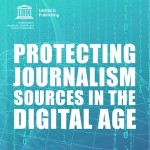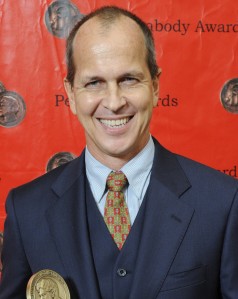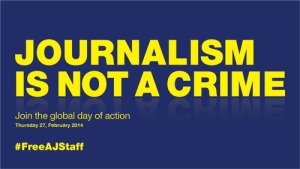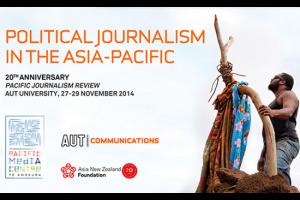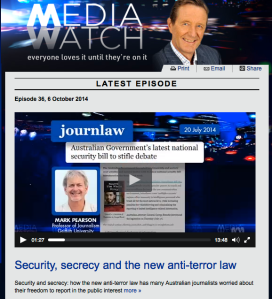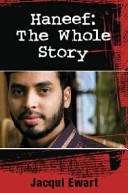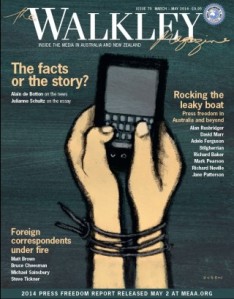A shorter version was published 22-6-15 in The Conversation as:
How surveillance is wrecking journalist-source confidentiality
By MARK PEARSON
Washington Post reporter Bob Woodward famously used cloak and dagger methods to communicate with his secret source – “Deep Throat” – in the 1972 Watergate investigation which led to the Nixon administration’s downfall.
https://twitter.com/julieposetti/status/612867415999971329
Woodward said he would move a pot plant on his balcony to signal to his confidential, high-level source that he wanted a meeting. If Deep Throat wanted a meeting, he would draw a clock face on page 20 of Woodward’s newspaper to indicate the time they should rendezvous in a disused underground car park.
These very 20th-century means of communication helped preserve the iconic source’s anonymity – until former FBI deputy director Mark Felt outed himself more than 30 years later.
It was significant, then, that Washington was the venue for the release of preliminary findings of a study by the University of Wollongong’s Julie Posetti into the threats to source confidentiality in a new era of sophisticated surveillance technologies and powers.
Leaving a trail
The study poses worrying questions about whether sources can ever be sure their communications with journalists remain confidential no matter how determined a reporter might be to protect them.
Journalists have a sacrosanct relationship with their confidential sources. It is enshrined in ethical codes internationally with some qualified protection under “shield laws” in Australia. Journalists don’t “rat” on their sources. In recent decades in Australia, three journalists have been jailed for refusing to reveal their sources in court – Tony Barrass, Joe Budd and Chris Nicholls.
Four decades on, in a digital era of surveillance and data storage, Watergate remains a useful yardstick for assessing the value of source confidentiality.
We can only speculate as to whether Woodward would have been able to preserve Deep Throat’s confidentiality with the surveillance tools and legislative reach agencies have at their disposal today. Some have argued that modern journalists need to return to those analogue means of communicating if they are to have a hope of protecting their sources, particularly when investigating national security, high-level corruption and matters embarrassing to governments.
Recently departed Guardian editor-in-chief Alan Rusbridger said:
I know investigative journalism happened before the invention of the phone, so I think maybe literally we’re going back to that age, when the only safe thing is face-to-face contact, brown envelopes, meetings in parks.
Associate editor at The Australian Cameron Stewart told me that investigative journalists had to leave their smartphones at the office when heading out to meet confidential sources. The 1970s Watergate methods were again becoming necessary.
However, following Woodward’s approach with Deep Throat would not, on its own, be enough in the digital surveillance era. CCTV footage and geolocation technology on mobile devices carried by either party could potentially link the journalist with their source.
As security expert Bruce Schneier explained, security agencies can also use device inactivity in a process of elimination to identify a source.
If they can account for the location of nine possible government sources’ phones over a set period – but the tenth has either been turned off for a long period or left at home – then that employee becomes the prime whistleblowing suspect. Despite their limitations, such primitive contact methods might make a one-off leak harder to trace than it would if there were email records and stored telco and internet provider metadata such as phone tower locations, call durations and IP addresses. These are all easily accessible under Australia’s new data retention laws. Stewart explained:
The thing I’ve got to my ear now [a smartphone] is your biggest enemy in every single sense, as the Snowden revelations have shown. The ability of authorities to track movements of journalists is really of great concern as far as protecting sources goes.
Veteran investigative journalist Ross Coulthart offered detailed insights into the detectable trail of communications between reporters and sources last month. He explained a major problem was the “first contact” from a whistleblower with a story.
If they contact me by phone or email now, though, I now warn them they’re compromised.
Coulthart also explained his use of encrypted communications and secure platforms in his efforts to disguise his contacts with sources or to expunge records of his contacts with sources. Guardian Australia’s Paul Farrell recently ran a masterclass on source and data protection for journalists teaching them about surveillance, encryption and freedom of information laws.
Paying the price
However, recent research by Curtin University associate professor Joseph Fernandez has shed light on how ignorant many journalists are of the risks of compromising their source confidentiality and even of whether recently legislated shield laws offer them any protection in the states or territories where they work. His survey of 154 journalists found that while almost all journalists expressed unreserved commitment to the confidentiality of their sources, three quarters were uncertain about the extent to which shield laws might cover them and almost half expressed no alarm at official surveillance of their communications. The price of a detected link can be high and many whistleblowers have paid the price of their liberty or careers.
They include the most infamous – Chelsea Manning – serving what is likely to be the rest of her life in a US military prison for her releases of information to Wikileaks.
In Australia, the list of discovered sources include former customs officer Allan Kessing, Victorian detective Simon Artz and design college part-timer Freya Newman.
If journalists are to have any hope of protecting confidential sources into the future it will require a multi-faceted approach along the lines recommended by Posetti in her UNESCO study.
It proposes an ambitious 11-point framework for enhancing free expression, strengthening legislative and policy shields for journalists and whistleblowers, and training reporters.
In 1989 Janet Malcolm used her long-form article ‘The Journalist and the Murderer’ in the New Yorker to question the ethics of the journalistic interview. She wrote:
“Every journalist who is not too stupid or too full of himself to notice what is going on knows that what he does is morally indefensible. He is a kind of confidence man, preying on people’s vanity, ignorance or loneliness, gaining their trust and betraying them without remorse.”
A quarter of a century later, the fundamental question facing journalists is whether the very act of promising confidentiality to a source (particularly a government whistleblower) is unethical, given the likelihood that agencies have the power, the will and the technology to detect and identify sources.
A 2015 Deep Throat would be unlikely to survive a week without detection, regardless of whether a journalist has promised them and even if a shield law allows the reporter to refuse to identify the source in court.
Sadly, despite such undertakings, the trail of metadata would likely produce enough evidence to nail the confidential source, further damaging the public’s right to know.
An abridged version of this article was originally published on The Conversation.
Read the original article.
© Mark Pearson 2015
Disclaimer: While I write about media law and ethics, nothing here should be construed as legal advice. I am an academic, not a lawyer. My only advice is that you consult a lawyer before taking any legal risks.
 As I foreshadowed earlier, the impressive study tracks, assesses and compares protective legal frameworks like shield laws over the 2007-2015 period, and recommends new measures for protection of journalists and their sources.
As I foreshadowed earlier, the impressive study tracks, assesses and compares protective legal frameworks like shield laws over the 2007-2015 period, and recommends new measures for protection of journalists and their sources.
